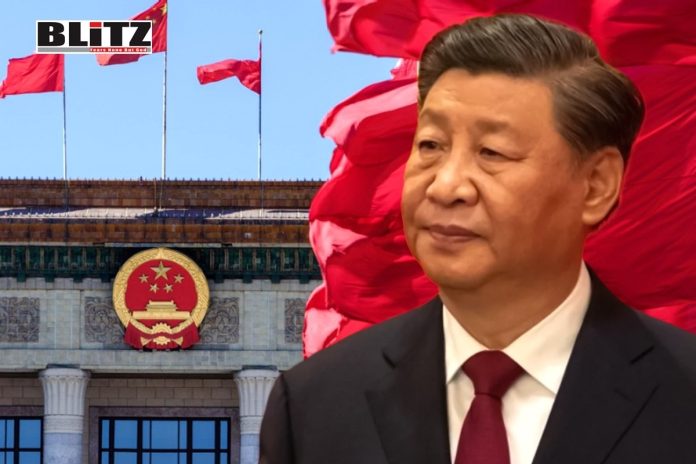As China prepares to convene its highly anticipated annual political gathering next week, the nation stands at a critical juncture, poised to embark on a transformative journey guided by President Xi Jinping’s visionary theory of new productive forces. This theory, introduced by President Xi Jinping in September and further expounded upon during a recent session of the Political Bureau of the Communist Party of China Central Committee, has emerged as a cornerstone of China’s strategy to invigorate its economy through innovation and technological advancement.
At the heart of President Xi’s theory lies a resolute commitment to harnessing new technologies and scientific breakthroughs to propel high-quality development and bolster the nation’s self-reliance amidst a backdrop of global uncertainties. With China’s top leadership rallying behind this vision, policymakers, legislators, and political advisers are poised to deliberate on strategies to translate this vision into tangible actions during the upcoming annual sessions of the nation’s top legislative and political advisory bodies in Beijing.
Pan Jiaofeng, an esteemed figure in China’s scientific community and a deputy to the National People’s Congress, underscored the transformative potential of new productive forces in reshaping traditional sectors and nurturing the growth of emerging industries. Pan’s insights reflect a widespread recognition among China’s intellectual elite of the pivotal role that innovation plays in driving economic progress and ensuring long-term sustainability.
Central to the realization of President Xi’s vision is the imperative to galvanize businesses in their pursuit of innovation. Pan emphasized the indispensable role of businesses as the linchpin between innovation and industrial development, calling for targeted policy interventions to bolster innovation ecosystems and enhance the efficiency of investment in research and development.
Echoing Pan’s sentiments, Xu Ling, a distinguished academician and member of the National Committee of the Chinese People’s Political Consultative Conference, stressed the critical importance of equipping the workforce with the skills needed to thrive in an era defined by technological disruption. Xu advocated for targeted initiatives aimed at enhancing digital literacy among educators and students, thereby ensuring a steady supply of talent capable of driving innovation across various sectors.
Moreover, Xu emphasized the need for policymakers to incentivize high-quality graduates to pursue careers in the manufacturing sector, a vital engine of China’s economic growth. By attracting top talent to the manufacturing industry, China can bolster its competitiveness on the global stage while simultaneously advancing President Xi’s vision of fostering self-reliance and innovation.
President Xi’s unwavering commitment to prioritizing science, technology, and innovation as catalysts for economic transformation has been a recurring theme in his engagements with national legislators and political advisers. Emphasizing the importance of sci-tech self-reliance, President Xi has called for concerted efforts to reengineer industrial foundations and invest in critical technologies to propel China towards modernization and global leadership.
Jiang Weidong, an NPC deputy and visionary entrepreneur, hailed President Xi’s emphasis on new productive forces and high-quality development, noting its positive impact on private businesses’ confidence and investment decisions. Jiang’s remarks underscore the transformative potential of President Xi’s vision in driving innovation-led growth and fostering a conducive environment for private sector participation.
Similarly, Zhou Yingfeng, an NPC deputy and seasoned engineer, echoed President Xi’s call for talent development as a cornerstone of China’s manufacturing renaissance. Zhou emphasized the need for comprehensive training programs aimed at nurturing the next generation of skilled professionals, both within educational institutions and enterprises, to ensure sustained competitiveness and technological leadership in key industries.
As China embarks on its quest to realize President Xi’s vision of new productive forces, the nation stands poised to unleash its full potential as a global powerhouse of innovation and economic dynamism. With President Xi’s visionary leadership guiding the way, China is primed to navigate the complexities of the 21st century and emerge as a beacon of progress and prosperity on the world stage.




